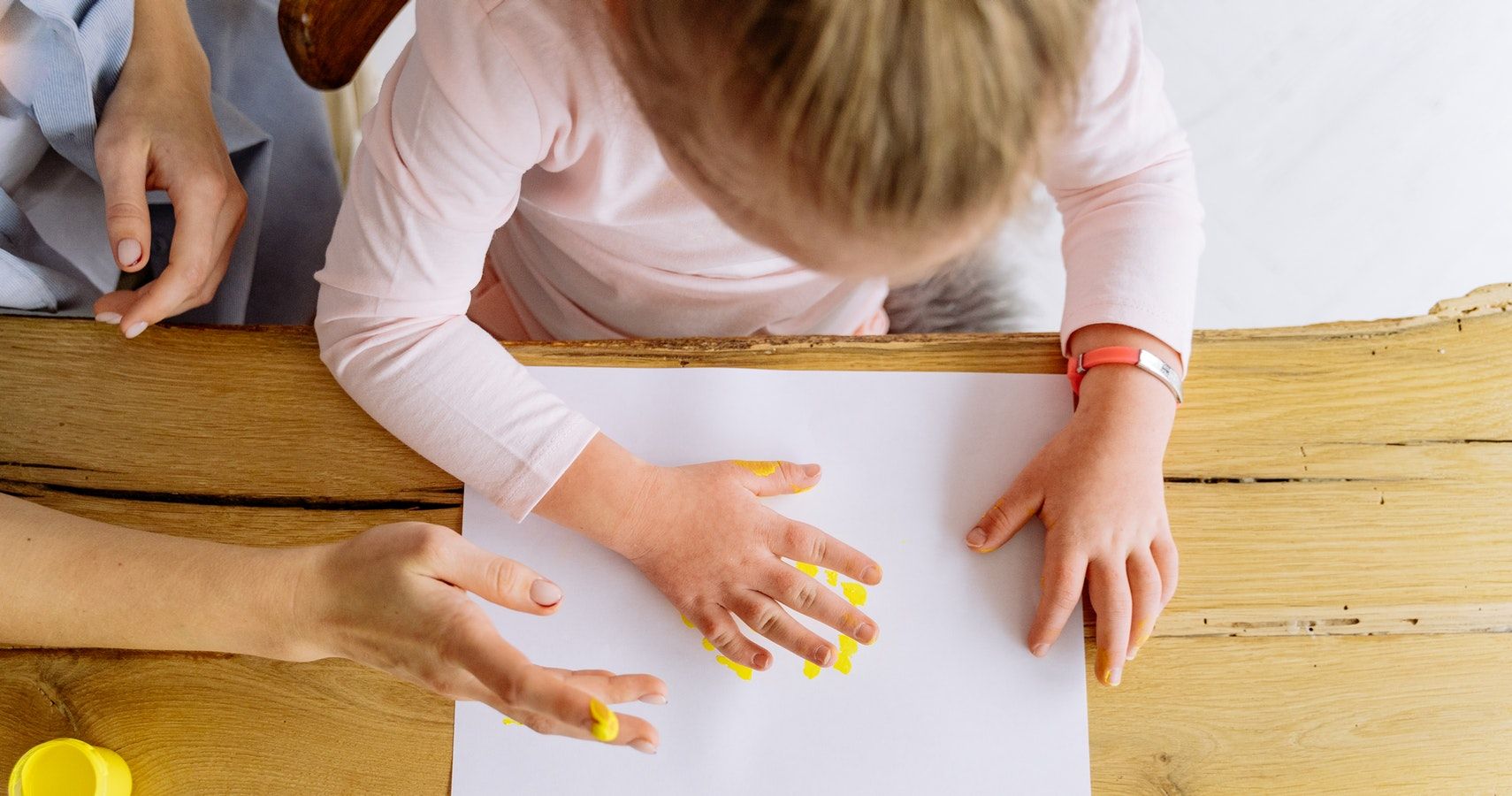Every child develops motor skills at their own pace. However, some children struggle with fine motor development more than others. While there may be a whole list of reasons why your kid is having a hard time with their fine motor skills, it's important that you help them improve since these critical motor skills are used for writing, using scissors, and even tying shoes. Luckily, you can help your preschooler develop their fine motor skills with any of these seven activities.
7 Play-Doh or Putty Play
Play-Doh or putty play can help kids utilize many muscles in their hands, which makes it great for fine motor development. When you break out the putty, Play-Doh, or clay, ask your child to squeeze, stretch, pinch, and roll it. Encourage them to make different shapes or even spell out letters with it. You can even kill two birds with one stone and work on scissor use by having your child cut the Play-Doh with scissors as they play with it.
6 Stringing Beads
Threading activities like stringing beads require a certain amount of dexterity and focus for kids to complete. This activity just requires some string or pipe cleaners and beads, which makes it pretty minimal cost-wise. You can make bracelets, practice sorting beads by color, or just focus on stringing them as fast as possible. What's more, you can always mix things up with these types of stringing activities so that they never grow old.
5 Tweezer Activities
Believe it or not, there are lots of activities your child can do with a simple pair or tweezers or small tongs that can help them develop their fine motor skills. You can have them drop pom-poms or cotton balls into ice cube trays or small cups or even have kids use tongs or tweezers to move pieces on a game board. In fact, fellow mom and occupational therapist Christie Kiley has a list of 50 great fine motor activities that kids can do with tweezers or tongs.
4 Building with Legos or Blocks
Legos and blocks can also help your preschooler develop their fine motor skills in several ways. For starters, holding onto small objects requires children to work their fingers in specific ways. Furthermore, stacking and connecting the Legos or blocks forces kids to practice controlling their muscles so that they apply just the right amount of pressure. And, of course, building with Legos or blocks is just fun!
3 Q-Tip Painting
Q-tip painting is a fun and creative way to help kids work on their fine motor skills while also practicing their pencil grip, meaning that it's both a fine motor exercise and a pre-writing practice activity. You can have kids use Q-tips to paint an entire scene or you can print out pre-designed pages where your child simply dabs to fill in the dots. Both are equally beneficial, so it's merely a matter of preference.
2 Sand Art
Although it can get messy at times, sand art is a great fine motor activity. With this project, children have to use a brush to apply glue to a picture, then they pinch colored sand and apply it to the page. It's a fairly cheap activity, and it just requires a piece of paper with an outine, some cheap glue, a basic paint brush, and some colored sand. You can also avoid some of the mess by placing a baking sheet under the paper so that all of the excess sand ends up there. Then you simply wait for the glue to dry and shake the excess sand into the trash can.
1 Tracing Pages
One of the most difficult fine motor tasks for preschoolers to grasp is the pencil grip. You can work on this skill with your child through tracing pages, though. These activities have your child trace things like zig-zag lines or even letters so that they can practice their pencil grip and hand motions before learning to write. If you aren't sure where to look for these types of activities, check out some examples on websites like Teachers Pay Teachers.
Fine motor skills are critical for a child's overall development and are an important part of the preschool years. Although most children naturally develop these motor skills over time, parents can absolutely help their child out by planning out activities that require their child to use fine motor skills. After all, practice makes perfect, right?

